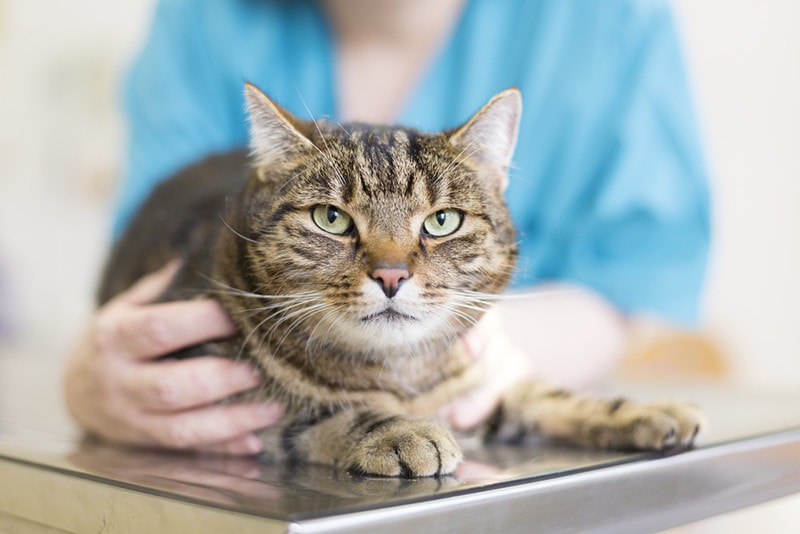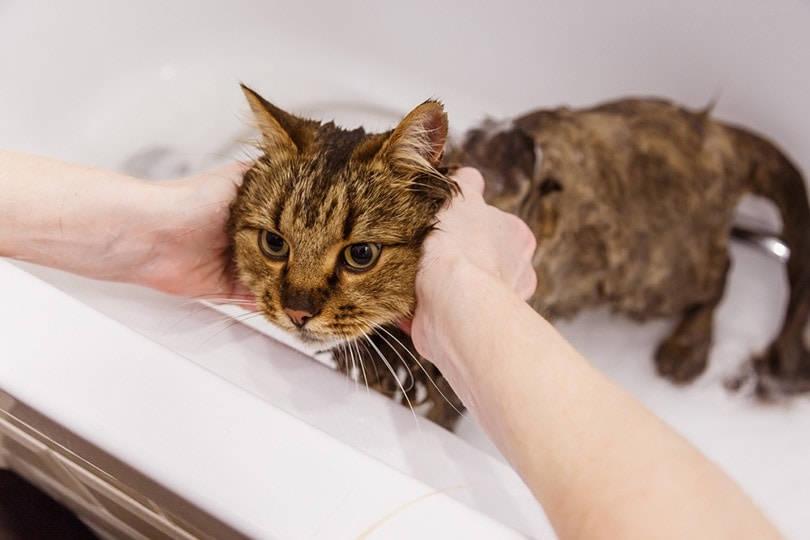Why Do Cats Purr? Feline Facts

Updated on
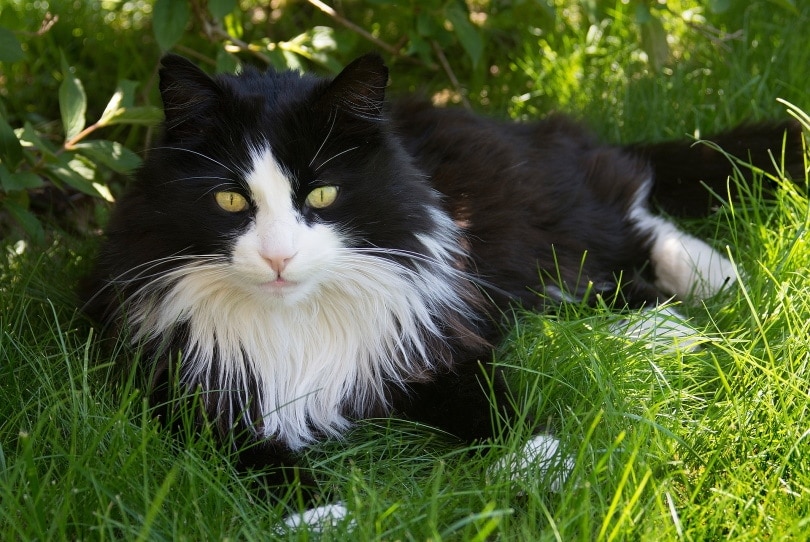
You’re lying on the couch relaxing while watching TV. Your cat jumps into your lap and curls up next to you, perhaps head-butting your hand for some love. Then, your pet’s motor starts, and it begins purring. Your kitty is obviously content and enjoying the bonding time with you. You may wonder why cats purr in the first place. Does it serve any purpose besides letting you know your kitty is happy? Cats purr for a variety of reasons, and it’s a behavior that serves multiple functions feeling content to healing and comfort.
Perhaps the most intriguing thing about purring is that it’s unique to so few animals. The only other animals that do anything remotely like it are species of European, Asian, and African cats called viverrids. Scientists don’t know a lot about them because of the inaccessible places in which they live. Interestingly, either felines roar or purr but not both. A lion won’t do it while lying next to you.
The Why of Purring
The next thing to consider is why a cat would evolve and develop this trait of purring. Does it serve a purpose? Do they benefit from making this sound? It occurs through interaction between the animal’s larynx, diaphragm, and the associated muscles. It also involves the glottis, the structure that hangs down in the back of their—and your—throat with the vocal cords.
While cats will purr when they’re content, that’s not the only reason it occurs. You may notice your pet purring when you take it to the vet. That’s certainly not a happy situation, but instead, is a stressful one. It’s not known if it’s a voluntary or involuntary response. However, it’s likely they have some control about doing it, not unlike blinking your eyes. It happens spontaneously, but you can do it whenever.
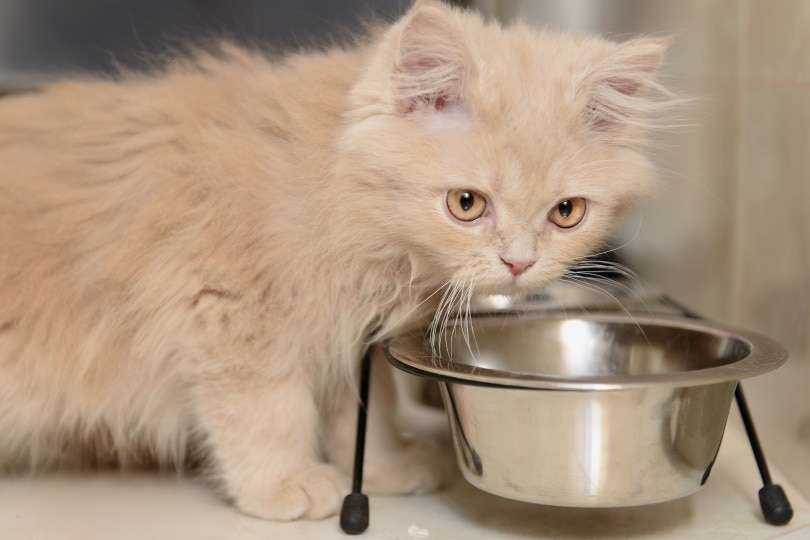
That fact suggests that purring can serve some functions that would behoove a cat to control. As it turns out, you may also notice that your kitty purrs when it’s hungry. It’s in an anxious state, with the animal anticipating the pleasure of being fed. The anticipation of being sated is undoubtedly a happy one, giving more credence to the content theory. It also implies that purring can calm a stressed animal.
Some research points to another reason for purring. Scientists have found that within those pleasing purring sounds are cries for something that the kitty wants, more often than not, food. Felines are intelligent animals. They learn your habits and schedule. They can also figure out that if they act cute, they can elicit some responses from you.
The Mother-Kitten Bond
We can go back further to find other reasons why cats purr. Let’s start with newborns. These felines are altricial animals, which means they are born essentially helpless. They can’t hear or see. They are totally dependent on their mother for everything, from food to warmth to elimination. While they can’t understand their world, they can purr only a few days after being born.
That can serve several purposes. It lets the mother know that they are around and that they’re still alive. It’s a survival instinct that helps to ensure the young get taken care of and fed. It’s not a stretch, being that this ability to purr goes online so soon after birth. Purring obviously serves a useful function well after birth, which explains why they continue to do it into adulthood. Instead of mom, it’s you.
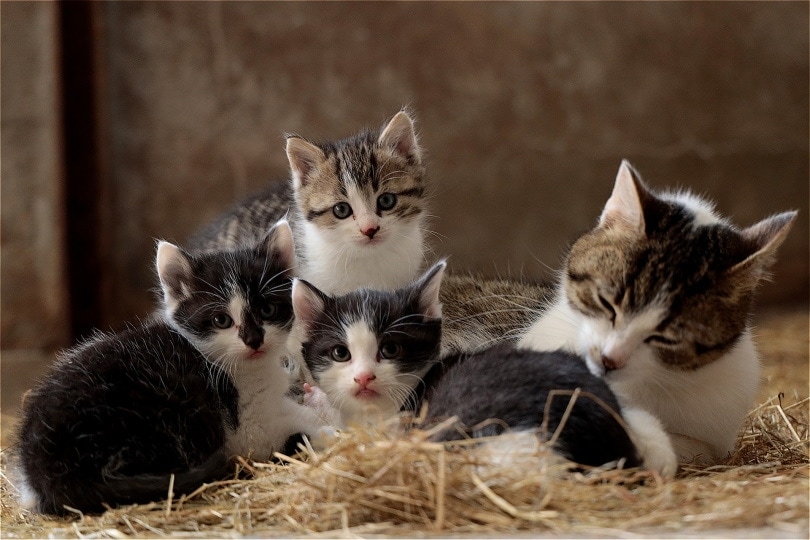
Healing Thyself
Other research has hinted at a different reason for purring that you may not have on your radar. The answer rests with the frequency of the sound of purring. It’s helpful to put a feline’s lifestyle in context. Often, it’s a feast-or-famine existence. After all, they aren’t successful every time they go on the hunt. Managing energy becomes a critical strategy for survival in these circumstances.
One theory suggests that the low-frequency purring sound that cats make may speed healing. Think about it. A feline depends upon hunting to survive. If they aren’t successful, that’s that. It makes sense that these predators would evolve to make recovery faster so that they can look for food faster. Every hour of downtime puts them at risk for disease and parasites.
That fact would provide a useful explanation for a cat purring under stressful situations. Undoubtedly, they take a toll, both mentally and physically. Moving past these times benefits felines. It’s imperative to remember that cats are obligate carnivores. Meat is their only food source. They don’t switch to fruits or grasses to make up for their hunting defeats.
Final Thoughts
If you’re like us, we love when our cats purr. It’s another form of communication that shows we’re doing something right, whether it’s the amount of love we’re giving them or the amount of food in their bowl. As we’ve seen, purring serves several vital purposes for cats that go back to the early days of their evolution. We think that if our kitty is happy, so are we.
Looking for more information on cat behavior? Take a look at our articles on:
- Why Do Cats Wag Their Tails? 5 Potential Reasons
- Why Do Cats Put Their Paws on Your Face? 6 Reasons for This Behavior
Featured Image Credit: Pixabay

